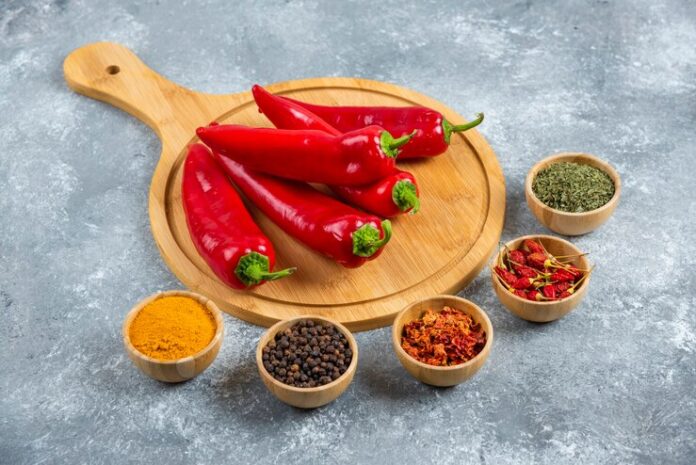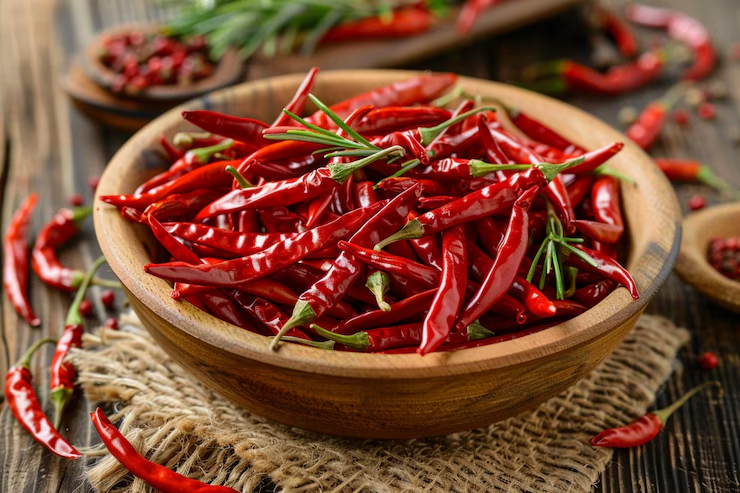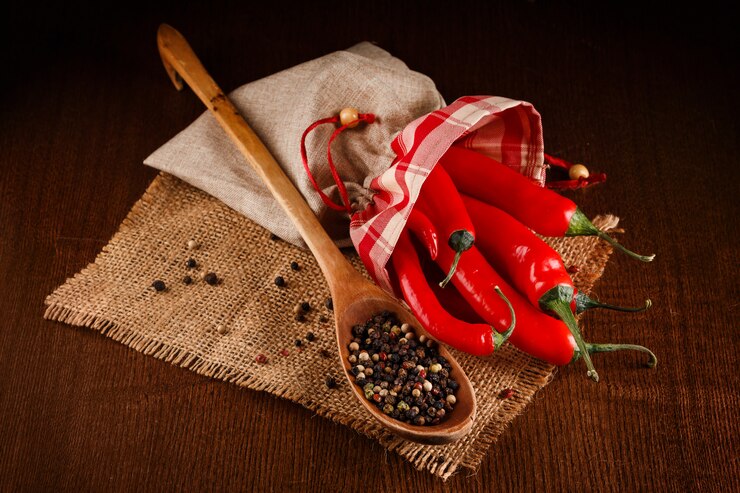Introduction
In the tremendous universe of culinary joys, scarcely any fixings brag the flexibility and blazing zing of the Chile de Arbol. This little, powerful pepper is a staple in Mexican food and has found its direction into kitchens around the world, adding a particular punch to dishes with its lively intensity and one of a kind flavor profile. In this article, we investigate the starting points, culinary applications, medical advantages, and developing acts of Chile de Arbo, giving a top to bottom gander at why this pepper merits a spot in your zest assortment.
The Origins of Chile de Arbol
Chile de Arbl, meaning “tree stew” in Spanish, is named for its woody stem. It is local to Mexico and is prevalently filled in the territories of Jalisco, Nayarit, and Zacatecas. This pepper has a place with the Capsicum annuum species, which incorporates other famous assortments like jalapeños and chime peppers. Known for its thin, stretched shape and splendid red tone, the Chile de Arbl is treasured for its culinary purposes as well as for its job in customary Mexican culture, frequently utilized in enriching wreaths because of its lively appearance.
Culinary Applications
The Chile de Arbol’s flexibility is quite possibly of its most prominent strength. With a Scoville heat rating some place in the scope of 15,000 and 30,000 units, it offers a medium to focused energy level, like cayenne peppers. This goes with it a phenomenal decision for the people who partake in a fiery kick in their dinners.
- Salsas and Sauces: Chile de Arbo is a typical fixing in valid Mexican salsas and hot sauces. Its searing flavor adds profundity and power, making it a number one for those trying to enliven their tacos, burritos, or barbecued meats. A customary salsa recipe could incorporate simmered tomatoes, garlic, onions, and a small bunch of dried chiles de arbol, mixed flawlessly.
- Soups and Stews: Adding Chile de Arbl to soups and stews can lift the dish by implanting it with a vigorous, smoky intensity. It coordinates well with fixings like tomatoes, beans, and meat, improving the general flavor profile.
- Zest Mixes: Ground Chile de Arbo is a vital part in many flavor mixes and rubs, ideal for preparing barbecued or cooked vegetables, meats, and fish. Its dynamic tone additionally adds visual allure for any dish.
- Injected Oils and Vinegars: For those hoping to explore, implanting oils or vinegars with Chile de Arbo is an innovative method for integrating its flavor into different dishes. These implantations can be utilized in dressings, marinades, or as a final detail for pizzas and pasta.
Health Benefits
Past its culinary allure, Chile de Arbol offers various medical advantages that make it a significant expansion to a reasonable eating routine.
- Plentiful in Nutrients and Cell reinforcements: In the same way as other peppers, Chile de Arbo is loaded with nutrients An and C, the two of which are strong cancer prevention agents that assist with safeguarding the body against oxidative pressure and backing a sound resistant framework.
- Helps Digestion: The capsaicin found in Chile de Arbo is known to support digestion and advance fat consuming, making it a valuable element for those hoping to keep a solid weight.
- Mitigating Properties: Capsaicin additionally has calming properties, which can assist with reducing side effects of specific circumstances like joint inflammation and muscle torment.
- Heart Wellbeing: Ordinary utilization of fiery food sources, including Chile de Arbo, has been connected to further developed heart wellbeing by advancing better dissemination and diminishing cholesterol levels.
Growing Chile de Arbol
Developing your own Chile de Arbl peppers can be a compensating experience, permitting you to appreciate new, local flavors whenever it might suit you. Here are a few hints for effectively developing these peppers:
- Environment and Soil: Chile de Arbol flourishes in warm, bright environments and all around depleted soil. They require a long developing season, so beginning seeds inside before the last ice date can give them an early advantage.
- Planting: When the seedlings are fit to be relocated, guarantee they are separated around 18 to 24 inches separated to consider legitimate air course. Mulching can assist with holding soil dampness and stifle weeds.
- Watering and Treatment: These peppers need predictable watering, particularly during droughts. Nonetheless, overwatering can prompt root decay, so finding some kind of harmony is significant. Treating with a decent, generally useful manure can uphold solid development.
- Vermin and Infection The board: Consistently examining plants for indications of bugs like aphids or insect parasites can forestall invasions. Regular cures, for example, neem oil or insecticidal cleanser, can be compelling in dealing with these issues.
- Reaping: Chile de Arbo peppers are regularly prepared for collect when they arrive at a dark red tone. They can be picked before for a milder flavor or left to develop for a spicier kick. Once gathered, they can be dried, ground, or utilized new in different dishes.
Preserving and Storing Chile de Arbol
To take full advantage of your Chile de Arbl gather, appropriate conservation and capacity methods are fundamental:
- Drying: One of the most widely recognized strategies for saving Chile de Arbol is drying. This should be possible by balancing the peppers in a very much ventilated region or utilizing a food dehydrator. Dried peppers can be put away entire or ground into powder for sometime later.
- Freezing: Freezing is one more viable method for safeguarding Chile de Arbl. Basically wash and dry the peppers, then, at that point, place them in impermeable compartments or cooler sacks. Frozen peppers can be utilized straightforwardly in cooked dishes without defrosting.
- Pickling: For a tart contort, consider pickling Chile de Arbl in vinegar, alongside garlic, spices, and flavors. Salted peppers make a delightful expansion to sandwiches, mixed greens, and charcuterie sheets.
Incorporating Chile de Arbol into Your Diet
For those new to Chile de Arbo, integrating it into your eating regimen can be a thrilling culinary experience. Begin with little amounts to measure your intensity resistance, slowly expanding the sum as you become familiar with its hotness. Here are a few basic thoughts for involving Chile de Arbo in regular dinners:
- Zesty Sautéed food: Add cut Chile de Arbol to a vegetable pan fried food for an additional kick of flavor. It coordinates well with fixings like chime peppers, broccoli, and tofu.
- Searing Pizza Beating: Sprinkle squashed Chile de Arbo over your #1 pizza for a red hot contort. It supplements fixings like pepperoni, mushrooms, and olives.
- Hot cocoa with a Kick: For a remarkable treat, add a spot of ground Chile de Arbl to hot cocoa or espresso for a warming, zesty refreshment.
- Fiery Serving of mixed greens Dressing: Mix Chile de Arbol with olive oil, lime juice, and cilantro to make a lively dressing for servings of mixed greens or cooked vegetables.
Conclusion
All in all, Chile de Arbol is something beyond a zest; a culinary fortune brings flavor, intensity, and medical advantages to different dishes. Whether you’re an accomplished cook or a fledgling in the kitchen, this pepper offers vast opportunities for trial and error and happiness. Embrace the searing charm of Chile de Arbol and hoist your cooking higher than ever.





